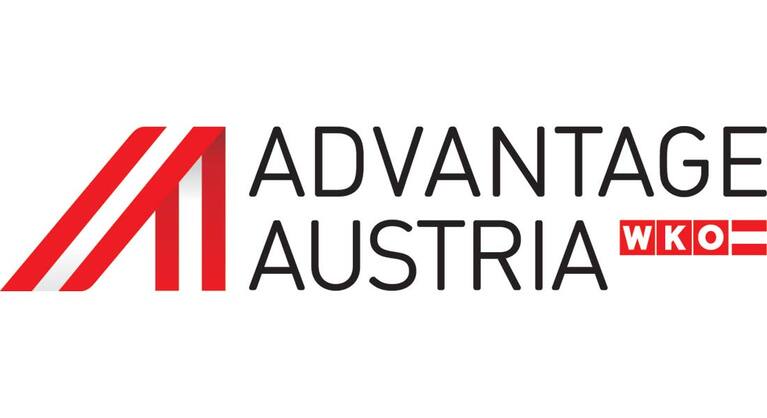UKRAINE: Many sectors need to catch up

An interview with Heiko Kreisel Managing Director of Zeppelin Ukraine, Kiev
After the crisis years of 2014 and 2015 with the sometimes civil-warlike conditions, we are now back on track for growth. At the height of the crisis, we reduced our workforce to 300, and now employ more than 550 people - more than ever before in Ukraine. Today, we are represented at fourteen locations between Lviv and Dnipro, Kiev and Odessa.
Around 50% of our sales are generated by the mining segment, 20% by construction and road construction machinery, 15% by drives and gas engines. The agricultural machines achieve 15% of the sales volume.
Read the complete interview here.
UKRAINE: Attractive for labour-intensive production

An interview with Andreas Schwabe Senior Economist CEE, Raiffeisenbank International AG, Vienna
Ukrainian economic growth has clearly exceeded expectations. We had assumed that in the double election year 2019, due to the political uncertainties, there will be a subdued growth of 2-3%. However, consumer confidence in the population has improved this year and expectations of many Ukrainian companies remain positive. As a result, growth for the full year 2019 should exceed 3%. Among other things, the strong growth is due to the significant increase in real wages of around 10% year-on-year, which is leading to a strong increase in retail sales and increased construction activity.
Read the complete interview here.
SOTM: Africa’s top imports in 2018
SOTM by africon
Over the last five years, Africa has been recording a trade deficit when it comes to total annual imports and exports of goods. Data trends also show that imports to and exports from Africa started increasing in 2017 after the decline in 2015. Also, China, France, USA, Germany, and India have remained Africa’s top export partners in these past years.
In 2018, Africa’s total imports was worth approximately 549 billion USD, and the largest imported product (using the 4-digit category) was petroleum and mineral oils which was valued at approximately 60 billion USD, that is, 11% of Africa’s total imports in 2018.
Read the complete article here.
5 Big Changes to China’s VAT in 2019

China Briefing is produced by Dezan Shira & Associates
Following the announcements made in the annual Work Report delivered at the Two Sessions, the Ministry of Finance, State Taxation Administration, and General Administration of Customs have jointly issued a series of new policies on value-added tax (VAT).
The new polices, which took effect on April 1, 2019, aim to enhance economic activity in certain sectors by lowering VAT rates and increasing VAT credits.
The latest changes mark the final stages of China’s overhaul of its VAT system, and come as part of a larger RMB 2 trillion (US$298.3 billion) cost cutting package intended to boost China’s economy.
Read the complete article here.
Tax Incentives for Developing Talent in Indonesia

ASEAN briefing is produced by Dezan Shira & Associates
- Indonesia offers tax deductions of up to 200 percent for businesses that invest in human resources development activities.
- A mismatch between labor force skills and the needs of foreign investors is a primary reason why the country is failing attract manufacturers shifting their supply chains as a result of the US-China trade war.
- The government hopes these incentives will enable its labor force to upgrade their skills and become more competitive.
On September 6, 2019, the Ministry of Finance issued Regulation No. 128 of 2019 (GR 128, 2019), which sets out tax incentives for businesses that invest in developing talent in Indonesia.
Read the complete article here.
How to Develop an Effective HR Retention Strategy in China

China Briefing is produced by Dezan Shira & Associates
- An effective HR retention strategy is becoming increasingly important in China’s volatile job market where a shrinking workforce and aging demography is driving up the competition for talent.
- The best employee retention techniques include a mixture of both external benefits like salary and bonuses and internal benefits like work-life balance, training and mentorship, and career growth prospects.
- Conduct an HR audit, identify your company’s competitive edge, optimize individual roles, and recognize good work.
It is not uncommon for businesses in China to experience a high staff turnover.
Read the complete article here.
SOTM: Plastic film imports in Nigeria
SOTM by africon
The objective was to attain profound understanding of the plastic film packaging industry, as well as to identify potential customers for a slitter manufacturer from Germany. Potential companies in this case included primary manufacturers of plastic film as well as plastic film converters.
Read the complete article here.
Social Insurance in China: Some Exemptions for Foreigners

China Briefing is produced by Dezan Shira & Associates
China’s social security system consists of five different types of insurance, plus one mandatory housing fund. The five “insurances” are pension, medical, unemployment, work-related injury, and maternity insurances.
The premiums for pension, medical, unemployment insurance, and mandatory housing found are jointly contributed to by the employer and employee, while the premiums for work-related injury and maternity insurance are solely contributed to by the employer.
Read the complete article here.
German economy is broadly represented

An interview with Anja Quiring Regional Director South Eastern Europe, the German Eastern Business Association (OAOEV)
How is the German economy represented in Romania and Bulgaria today?
Economic relations with both countries stand on a solid foundation. A good indicator, which from my point of view illustrates the commitment of German companies in the countries, is the number of jobs created.
According to a study by the Institute for Market Economics, German companies have created more than 35.000 jobs in Bulgaria. The German-Romanian Chamber of Commerce and Industry (AHK) in Bucharest estimates the number of jobs created by German companies in Romania at over 350.000.
Read the complete interview here.
Shortage of Workers Steadily Intensifying

Interview with Uwe Köhler, Managing Director, Husqvarna, Russia and Bulgaria
What should a Western European company consider when entering the Bulgarian market?
Choosing the right location is crucial to success in Bulgaria. At the same time, the infrastructure should be analysed precisely, as in some places it still leaves much to be desired. For example, in Ruse there is no motorway connection. However, the government has done much to ensure that the regions are generally better connected to international transport routes.
The second important issue is the availability of labour. Recruitment is becoming more and more challenging, especially in rural regions. There is a strong migration in big cities like Sofia and abroad.
Read the complete interview here.
Bucharest is not Romania

An interview with Roland W. Schacht Managing Director with responsibility for Romania, Moldova, Greece and Cyprus at Schmitz Cargobull Romania, Bucharest.
To what extent is Romania attractive as a production location for Western European companies?
Until now, Romania has been an interesting location due to the availability of land and well-trained technical staff. Today, however, there is a labour shortage, which is mainly due to emigration - about five million Romanians have emigrated since the early 1990s.
The young people are not as much technically oriented as they used to be. Many work in IT and services, less in production and technology. Romania has therefore lost appeal for manufacturing companies.
Read the complete interview here.
A review of current court practice related to migration law topics

An article by Andrey Slepov, Partner, Head of the Labor and Migration Practice, BEITEN BURKHARDT, Moscow
General recommendations
When a company files documents for a work permit with the migration auvisited the address indicated in the application and found that there was no office of the employer at this address. The company tried to contest this decision, but the court dismissed the claim with a reference to Clause 9.7 of Article 18 of the Federal Law “On the Legal Status of Foreign Citizens in the Russian Federation”, according to which a work permit shall not be issued or an issued permit shall be cancelled if the employer submits knowingly false information about itself to the police. Ban on entry into Russia for two administrative violations is contestable Two or more administrative violations within a span of three years may lead to a ban on a foreign citizen entering thority (including for a highly qualified specialist), it should be prepared for the migration authority to conduct a fairly comprehensive check before issuing the permit, especially if citizens from so-called “countries with migration risks” are being hired. Therefore one should verify that all information provided is complete and true, and be prepared that the officers may decide to visit the company’s office or have a face-to-face interview with its management, etc.
Read the complete article here.
Expatriate Workers in Indonesia: New Regulation on Positions Open for Employment

ASEAN briefing is produced by Dezan Shira & Associates
On August 27, 2019, Indonesia’s Ministry of Labor issued Regulation No. 228 of 2019 (“Regulation 228, 2019”) to define the types of job positions foreign employees can hold in the country. The new regulation widens the number of positions open to expatriate workers, consolidates the list of positions into one, and simplifies the approval process for foreigners and their employers.
Regulation 228 lists more than 2,000 job titles across 18 sectors that can now be filled by expatriates. The job titles are taken directly from the International Standard Classification of Occupations (ISCO), issued by the International Labor Organization (ILO). The job positions and the requirements in Regulation 228, 2019 will be re-evaluated by the government in two years.
Read the complete article here.
China’s Social Security System

China Briefing is produced by Dezan Shira & Associates
China’s social security system constitutes five different types of insurance and contributions to the mandatory housing fund. China Briefing explains how social security in China is calculated, what are employer obligations, and how it impacts foreign workers and migrants.
Social security is a complicated but unavoidable issue in the employer-employee relationship management for businesses operating in China.
Read the complete article here.
Social Security Agreement between China and Japan Effective September 1

China Briefing is produced by Dezan Shira & Associates
The Social Security Agreement between China and Japan took effect September 1, 2019, according to China’s Ministry of Human Resources and Social Security (MHRSS).
The agreement will allow Chinese and Japanese nationals working in the other country to avoid paying part of the social insurance.
According to the agreement, Japan will exempt Chinese companies’ dispatched employees, employees on board sea-going vessels and aircrafts, members of diplomatic missions and consular posts, and civil servants from Japan’s two major local annuities – national pension and employees’ pension insurance.
Read the complete article here.
Singapore’s Employment Act: The Top 6 Amendments

ASEAN briefing is produced by Dezan Shira & Associates
On April 1 2019, the Singapore government enacted major amendments to the Employment Act (EA). The EA is the country’s main labor law, and the changes affect core human resource (HR) and payroll compliances termination procedures and leave allowances for employers, as well as employees’ rights in the work place.
The new law affects all businesses and all employees – local and foreign – under contract with an employer in Singapore.
Read the complete article here.
Criticisms are repeatedly raised by the EU as well

An interview with Dr. Martin Glatz, Head of ADVANTAGE AUSTRIA Beijing; Commercial Counsellor at the Austrian Embassy for China, Mongolia and North Korea.
What are the consequences of the US-China trade dispute for European companies?
It is obvious that the conflict does have an impact. Austrian companies in China note that the trade dispute, with its frequently changing targets and sentiments, creates uncertainty.
Among other things, uncertainty affects investment plans of Austrian companies in China. They become more hesitant, especially in the consumer goods sector, where margins are already thin. They become more hesitant, especially in the consumer goods sector, where margins are already thin. Here, relocating manufacturing sites to neighbouring Southeast Asian countries is considered more frequently. But it also happens that Chinese customers substitute American goods with European products to avoid punitive tariffs.
Readt the complete interview here.
Opening is in Chinese Self-Interest

An interview with Sebastian Wiendieck, Attorney-at-law, Director of the legal department, Rödl & Partner, Shanghai.
Which legal regulations have previously hindered the business activities of foreign companies in China the most?
This question would basically require a long answer, but in summary many problems are related to the fact that there is still no freedom of establishment for foreign investors in China.
In the past, the admissibility of a foreign investment was governed by the so-called Catalogue of Industries for Guiding Foreign Investment, which provided for investments permitted, restricted, or prohibited.
Read the complete interview here.
Recruiting in China: Key Legal Considerations

An article by Marco Förster, Dezan Shira & Associates, Beijing
Companies recruiting employees directly in China need to understand key aspects of the country’s labour and contract laws, rules, and regulations. Here we answer simple questions about the recruitment process and discuss the types of labour contracts in China.
In principle, any company located anywhere in the world may employ a Chinese person to physically work in China.
Read the complete article here.
Beneficial ownership concept: how it could affect your business in Russia

An article by Brand and Partner
Nearly every Russian company belonging to a multinational group of companies has inter-company or cross-border arrangements which might be especially attractive due to applicable double taxation treaty (DTT) incentives allowing reduced withholding tax rates or taxation only in the country of the recipient of such income. Russian companies may also pay out dividends subject to participation exemptions provided in the DTTs. In order to apply such DTT incentives, a foreign recipient should provide a Russian company with the certificates of tax residency and, starting from 2017, with confirmation of the recipient’s actual right to such income.
Read the complete article here.
Income Tax Return Forms in India

India Briefing is produced by Dezan Shira & Associates
The income tax forms require individuals and businesses to disclose details of their income, professional as well as residential status.
Assessees who earn a taxable income must declare their total income earned by filing an income tax return (ITR) form. For FY 2018-19, the Central Board of Direct Taxes (CBDT) has introduced new ITR forms that have increased reporting requirements and seek more details of the taxpayer with respect to income, profession, and residential status.
The last date for filing income tax returns for FY 2018-19 is August 31, 2019.
Read the complete article here.
The aftermarket for commercial vehicles in South Africa
SOTM by africon
In late 2018, africon conducted a project on the independent aftermarket (IAM) for commercial vehicles in South Africa. The target of the project was to identify potential partners that are not only suitable, but also themselves interested to take up business with the client. Along the way, we scanned partners of most of Europe´s big aftermarket suppliers, from ZF, Mahle to Mann+Hummel and others.
Read the complete article here.
The Code on Wages Bill, 2019: What Employers in India Need to Know

India Briefing is produced by Dezan Shira & Associates
Last week, the parliament of India passed the Code on Wages Bill, 2019 (“the Bill”). The Bill will enable the federal government to fix minimum statutory wage for millions of workers.
The Bill is the first in the series of four labor codes that the government is working on to rationalize its 44 labor laws and improve the ease of doing business in the country.
The Bill seeks to subsume relevant provisions of the previous laws pertaining to workers’ wages, equal remuneration for men and women, its payment and bonus. The other three codes will deal with social security, industrial safety and welfare, and industrial relations.
Read the complete article here.
Entering the Indian Market Step-by-Step

An article by Christian Tegethoff, Managing Director, CT Executive Search for The Hunt Report
Not only the large German corporations, but also many mid-sized German companies are well experienced with working on foreign markets. This is especially true in the German B2B sector, where practically all companies operate international supply chains and export their products to distant places like China, Russia or the USA.
India with its growing economy is becoming more and more attractive especially for German manufacturers from the machine-building, automotive and pharmaceutical industries.
Read the complete article here.
Recruiting in China: Key Legal Considerations

China Briefing is produced by Dezan Shira & Associates
Companies recruiting employees directly in China need to understand key aspects of the country’s labor and contract laws, rules, and regulations. Here we answer simple questions about the recruitment process and discuss the types of labor contracts in China.
In principle, any company located anywhere in the world may employ a Chinese person to physically work in China.
However, the employment contract will not be regulated by relevant Chinese legislation unless it is entered into via an invested entity on the Chinese mainland, or under circumstances where the overseas company is regarded as a permanent establishment in China.
Read the complete article here.


